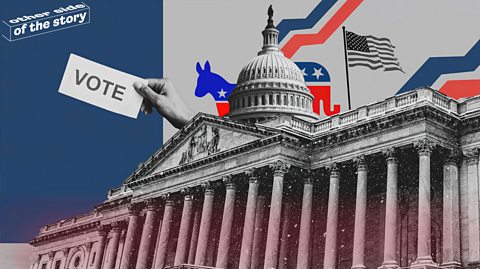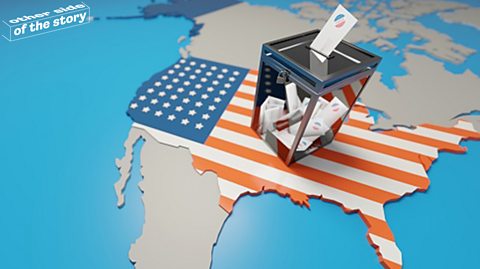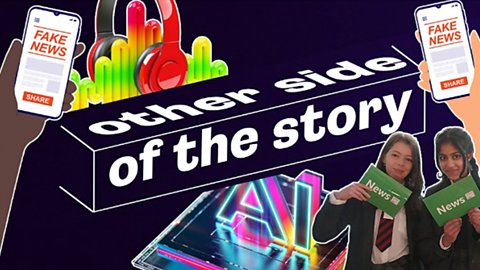Fake news is back on the agenda with changes to Instagram and Facebook, along with controversial social media posts by Elon Musk about the UK government, hitting the headlines ahead of Donald Trump’s inauguration.
Could these changes mean that you’re seeing more and more fake news on your feeds, and what steps can you take to ensure what you’re reading is true?
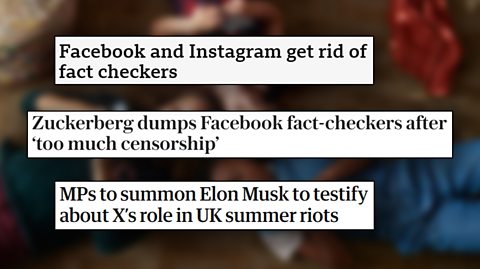
What changes are Meta making to Facebook and Instagram?
Meta boss Mark Zuckerberg recently announced that the company is replacing the use of independent fact-checkers on Facebook and Instagram with X-style ‘community notes’. These will allow users with different viewpoints to agree on notes which add context or clarifications to controversial posts.
Meta has said this will help to promote free speech on the platform because fact-checkers intervene too much meaning that “too much harmless content gets censored.” Donald Trump and his allies had previously criticised Meta’s fact-checking policy for censoring right-wing voices.
X owner Elon Musk, whose platform uses similar crowd-sourced community notes to fact-check or rebuff posts, has described the changes as “cool”.
How could this impact the amount of fake news you see?
Zuckerberg appears to have acknowledged that the changes come with a trade-off that could see more fake news flooding the platforms, stating: “It means we’re going to catch less bad stuff, but we’ll also reduce the number of innocent people’s posts and accounts that we accidentally take down.”
Full Fact, a fact-checking organisation which verifies Facebook posts in Europe, has described the changes as a “backwards step that risks a chilling effect around the world,” adding that “locking fact checkers out of the conversation won’t help society to turn the tide on rapidly rising misinformation”.
The organisation said that – unlike users on the platform who will add community notes - their fact checkers are specialists who are trained to tackle harmful information while promoting credible posts, and that they are strictly impartial.
Campaigners against hate speech have accused Meta of ‘cosying up’ to the incoming president, and outgoing president Joe Biden addressed the changes in his final television speech, saying: "Social media is giving up on fact checking. The truth is smothered by lies told for power and for profit."
The changes to Facebook and Instagram currently apply to the US only and there are no immediate plans to make changes in the UK or EU. However, users outside of the US will still be able to access posts that haven't been fact-checked.
There have also been concerns about fake news on X, which was linked last year to the spread of misinformation about the UK riots.
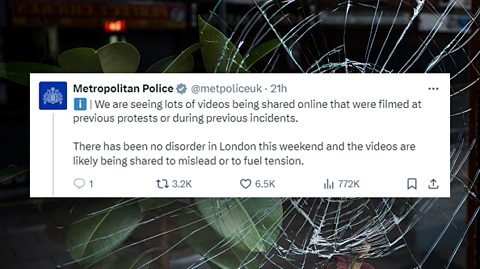
More than 30 people were arrested over social media posts that were shared in the aftermath of an attack that left three children dead in Southport. Musk is expected to be summoned by MPs later this year to testify about the role X played in the riots that followed in the days after the attack.
UK security officials also recently confirmed they are monitoring posts by the X owner as a possible security risk after comments he has made about the UK government, and he has been accused of spreading disinformation by a Labour MP.
How did fake news impact Trump’s first term as President?
The term ‘fake news’ became synonymous with Trump’s first term in office and it was even named word of the year by Collins Dictionary in 2017 after he popularised it by using it frequently to delegitimise critical journalism.
Trump’s first presidency kicked off with controversy when the newly appointed president disputed that more people had attended Barack Obama’s 2009 inauguration ceremony, despite photographs showing larger crowds that were published by reputable media outlets.

Misinformation was also rife during last year’s US election campaign and a host of fake news spread on social media following the first assassination attempt on the incoming president.
These latest developments mean that it is more important than ever to make sure what you are reading online is accurate. So, how can you protect yourself against fake news?
Here are a few questions you should always ask yourself to make sure you don’t get caught out.
Have you checked the source?
When considering whether the news you’re reading and watching is real or fake, a good starting point is to check the source. It’s best to go to reputable, trustworthy news outlets with fact-checkers to make sure the story is correct.
If you’re reading a post on a platform that uses community notes, you could search to find out what reliable sources are saying about the same story.
Have you double and triple checked?
If you’re trying to determine whether something you’ve read is fact or fiction, it’s a good idea to look for it on multiple news outlets. If a story is being widely reported from lots of different (reliable!) sources, the greater the odds are that it’s real.
Is what you are reading impartial?
Even if a story isn’t fake, it's important to be aware of how objective it is. Always consider whether what you are reading is biased or unbiased – is it simply one person’s opinion?
Even some news stories don't include all angles, either emphasising or omitting information, and this could sway you towards a particular decision or view, leading to bias.
Is your own bias affecting your judgement?
Being biased about a particular topic can impact your decisions and reactions, because having strong views might make you overlook facts and other people's viewpoints.
This could also make you less inclined to question the things you see online, especially if those things align with your personal views, and you could end up sharing and spreading misinformation.
This article was published in January 2025

Not sure if the news you’re seeing on social media is true or false? Can you always tell if the things you see online are real or fake? Learn how to get the other side of the story with our quizzes, videos and explainers.
